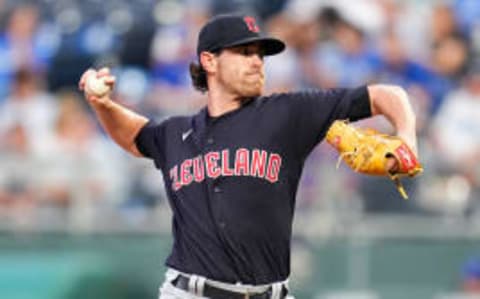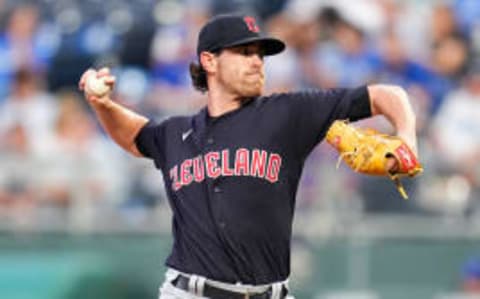Blue Jays Trade Deadline: Learning from Past Deals

Mar 1, 2015; Dunedin, FL, USA; Toronto Blue Jays general manager Alex Anthopoulos watches during spring training workouts at Bobby Mattick Training Center. Mandatory Credit: Kim Klement-USA TODAY Sports
So much has been written and talked about with regards to the Toronto Blue Jays’ possible run at the playoffs in 2015. What will they do heading into the July 31st Trade Deadline? There are certainly lots of ideas out there. Will they chase Johnn Cueto? Cole Hamels? Or, will they dial back their targets in favor of keeping their coveted prospects? Perhaps, they will look back on past deals in an attempt to glean some kind of insight that might help them make their decision.
There are 3 obvious examples of the Blue Jays heading into the Trade Deadline with a goal in mind. That goal was to make an attempt at winning. They were in the chase of a playoff spot and needed to make a decision and on a move that would help propel them forward. Two of those three times it paid off.

Toronto Blue Jays
In 1992, the Blue Jays traded for the rental of David Cone. The move can be said to have worked since it resulted in the first World Series championship this country has ever know. In 1993, the club made a move to bring in the best base stealer of all time. Rickey Henderson came over from Oakland. While he didn’t contribute much himself, the move can be seen as a success as it brought yet another championship to Toronto. It would be the last championship this country has ever know.
The Blue Jays had another opportunity to make a playoff push in 2000 when they were 1.5 games out of the division lead. It was actually a rather eerily similar situation to this season. This year’s club isn’t as close to a playoff spot as they were back then. But, that time, they opted to go after a B level pitcher to help their potent offense out. They went to the Texas Rangers for an average pitcher in Esteban Loaiza. In doing so, they made what turned out to be one of the worst decisions this club has ever made. They gave up a prospect who would go on to be a great major league players for years.
And, such is the risk of making these deals. In order to compete or to win, you have to sacrifice some young, possibly unknown talent that could make you regret your decision. Or, you could give up big talent that doesn’t pan out and you go on to win! In this day and age, club’s (and fans) value prospects much more than they used to. This leads to the question of pulling off a big trade mid-season one that does not have a sure fire answer. There is no right or wrong, perhaps.
But, there are certainly 3 examples that can be used to show both sides of the debate. Let’s take a look!
Next: Renting Glory Pt.1: David Cone
May 24, 2015; Bronx, NY, USA; New York Yankees former player David Cone looks on during the ceremony retiring Bernie Williams number 51 prior to the game against the Texas Rangers at Yankee Stadium. Mandatory Credit: Andy Marlin-USA TODAY Sports
Near the end of August, 1992, the Blue Jays brought in David Cone in exchange for Jeff Kent and a player to be named later, which ended up to be Ryan Thompson. At that point in the season, Cone was 13-7, 2.88. He had already had a 20-3 season in 1988 and was putting together another All Star season when the Blue Jays brought him aboard. He was granted his free agency in the fall after he had helped bring the first World Series trophy to Canada. His efforts totaled a 4-3 record with a 2.55 ERA. He threw 53 innings (224 batters faced) for the Blue Jays with an ERA+ of 161.
Live Feed class=inline-text id=inline-text-2
Betsided
And, what did it cost to get Cone to face 224 batters and help bring this team to the World Series victory? Well, Ryan Thompson, an outfielder, went on to play 9 years at the big league level including the first 4 years with the New York Mets. He never saw more than 98 games in a season (1994) and ended with a career line of .243/.301/.433.
Jeff Kent, though is a different story. He went on to have a great major league career with the Mets, Giants, Astros, and Dodgers. At the time, he was a 24 year old rookie. But, he’d go on to have a 17 year career where he was a 5 time All Star and the National League MVP in 2000. He finished top 10 in MVP voting 3 times. He’s not won a World Series, but did play on the 2002 runner up Giants team that lost to the Angels.
Regardless, this trade can be debated. Did the Blue Jays “win” this one? Well, they won the World Series (and the next one). But, for the cost of David Cone and his 224 batters faced, they gave up an infielder who had a stellar career and recently received 15.2% of Hall of Fame votes to remain on the ballot for future considerations. What is interesting is that these days, many say it was worth it to give up such talent to make a push toward the promised land.
Next: Renting Glory Pt.2: Rickey Henderson
March 31, 2014; Oakland, CA, USA; Oakland Athletics former player Rickey Henderson throws out the ceremonial first pitch before an opening day baseball game against the Cleveland Indians at O.co Coliseum. Mandatory Credit: Kyle Terada-USA TODAY Sports
On July 31st of 1993, the Blue Jays picked up Rickey Henderson from the Oakland Athletics for yet another playoff run. That season, Henderson was hitting .327/.469/.553 with 17 HR and 31 stolen bases. He’d already been an All Star 10 times and would go on to steal 1406 bases in his 25 (!) year career. Henderson averaged 74 stolen bases per season. But, what did he bring to the Blue Jays? In 44 games, he made 203 plate appearances and hit .215. He did steal 22 bases. But, he only managed 3 doubles, a triple and 4 home runs. One could argue the impact of such a rental. Can we say the move worked since it helped lead to a World Series win?
More from Toronto Blue Jays News
- Matt Chapman has been exactly what the Blue Jays needed
- Blue Jays: The goalposts are moving in the right direction
- Single-A Dunedin Blue Jays advance to the Championship Series
- Blue Jays: Comparisons for Alek Manoah’s Second Season
- Blue Jays: Adam Cimber, the unlikely decision King
Was it worth giving up the package they did for the Blue Jays? Well, they gave up minor leaguers Steve Karsay and Jose Herrera. From 1995-1996, as an outfielder, Herrera played all of 141 games for the Athletics. He put up rather unremarkable numbers during his two year MLB career. The Blue Jays gave up a right handed pitcher in Karsay who was their 22nd overall pick in the 1990 draft. So, one could say the value was there. But, it didn’t really pan out for the A’s. In the two years following the deal, Karsay would start just 12 games in total, going 4-4. He missed all of 1995 being injured. It would happen again to Karsay in 2003.
All together, his career netted him 11 seasons, a 32-39 record and a 4.01 ERA. His best season came in 199 with the Indians where he went 10-2…as a reliever.
And, this was a 1st round draft pick that the Blue Jays gave up for a rental player. For this club, the deal looks pretty one sided. While you can question whether Henderson’s performance actually put the team over that hump to win that year, you can’t argue that the move is one they did not regret. They won their second World Series that year and gave up what appeared to be a lot, but ended up to be not much.
Next: Trades Don't Always Work Out!
Jan 31, 2014; Arlington, TX, USA; The president of baseball operations Jon Daniels (left) and manager Ron Washington (right) help former Texas Ranger Michael Young (center) with his jersey and hat at a press conference announcing his retirement at Rangers Ballpark in Arlington. Mandatory Credit: Tim Heitman-USA TODAY Sports
In July of 2000, the Blue Jays needed pitching help. Sound familiar? They had an offense that was a force. Sound familiar? They were in a playoff race and needed to make a move. Sound familiar? So, they brought in Esteban Loaiza. At the time, he was a right handed pitcher who was a game under .500 (5-6) with an ERA of 5.37 for the Texas Rangers. He would give the Blue Jays 2+ seasons of less than .500 baseball in 69 starts.
Live Feed class=inline-text id=inline-text-2
Betsided
And, what did it cost? Well, it might just have been one of the worst giveaways in Blue Jays history. They sent Darwin Cubillan and Michael Young the other way. Now, no one can blame you if you can’t quite place Cubillan. He was a reliever that threw a total of 69.2 innings between 200 and 2004. He has one win to his name and a healthy 6.85 ERA. On his own, not enough to make us lament the below average performance of Loaiza.
Michael Young on the other hand…
At the time of the trade, he was a minor league infielder who was the 5th round selection of the Blue Jays in 1997. He may not have seemed like a significant loss at the time. And, when you’re bringing in a B (or C) level pitcher like Loaiza, you’re probably thinking that Young would have been an acceptable price. Maybe.
Except, he went on to be a 7 time All Star and a 2008 Gold Glove winner. His 14 year career netted a line of .300/.346/.441. He twice led the league in hits (2005 & 2011) and led the league in average in 2005 with a .331 mark. Young was one of the premier hitters in the mid-2000 years. And all we could do was watch him flourish in a Rangers uniform while we lamented the failed attempt at making the playoffs in 2000.
Next: The Lesson for the Blue Jays
Dec 9, 2013; Orlando, FL, USA; Toronto Blue Jays general manager Alex Anthopoulos talks with reporters during the MLB Winter Meetings at the Walt Disney World Swan and Dolphin Resort. Mandatory Credit: David Manning-USA TODAY Sports
The deals in 1992 and 1993 helped bring a championship to Toronto. There may or may not be parallels with this season, here. But, they do provide us with some historical context for making a playoff run and the associated cost of doing so.

Toronto Blue Jays
The Loaiza deal might be the cautionary tale that Blue Jays fans look to this July when we think about possibly giving up prospects for that pitcher who will help us make a run at the post season. It is especially interesting this year because, like in 2000, the Blue Jays may be looking to avoid going after the top level of talent available in favor of giving up fewer prospects. Instead, they may look at a B level starter and hope they can help. We’ve seen that before and the memory does not sit well.
But, what are the Blue Jays to do? They have the pieces to go all in. They may not want to part with them, but they are there. Should they choose to hold on to them, they are possibly taking a bigger risk. It very well could backfire on them. But, they could also go for a big fish like in 1992 or 1993 and get little in the way of performance from said fish. But, if it leads to a division title or (dare we think it?) a World Series, will we still be so attached to our prospects?
The Blue Jays are in an interesting position leading into the July 31st Trade Deadline. Things could go one of several different ways. And, fans are split. Some want a winner NOW. Others want to win, but do not want to part with the big prospects to do so. The Blue Jays are likely somewhere in the middle. What they do in the coming days will certainly be scrutinized. And, hindsight being what it is, we can do that. We have history to back us up. Sometimes deals work out. Sometimes they don’t.
Next: Did Blue Jays Give up Too Much for Josh Donaldson?